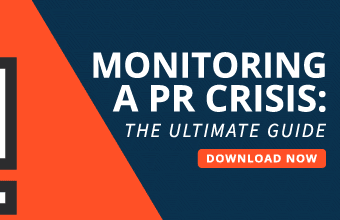Just days after his campaign announced a haul of $25 million in donations for the 3rd quarter, Bernie Sanders’ presidential campaign is reeling following an emergency procedure to open a blocked heart artery—later confirmed to be the instigator of a heart attack—and the suspension of campaigning “until further notice.”
At 78, Sanders is the oldest among the Democratic candidates, and his advanced age has already been a potential stumbling block on his quest for the White House. Certainly, it will be a challenge for him to bounce back and command his double-digit poll numbers in the wake of a significant operation requiring the insertion of stents. But it isn’t necessarily a deal-breaker for American voters.
Sanders and his campaign operatives can overcome this, by adhering to some of the standard crisis communications playbook, and taking some other actions particular to this scenario, and this candidate. As someone who has dealt with atrial fibrillation most of my adult life, here are my thoughts on what they might do:
Nail down the messaging
Get the messages rock solid and stick to them, over and over. Yes, this was a heart attack, but that’s not a death sentence. And with insertion of stents, the candidate should be on his feet soon with vigor, and possibly more energy than before, according to his doctors and cardiologists who have been quoted on the subject.
Point to recent history
Sanders hasn’t had issues with his heart before, and many people will have occasional setbacks when they come of a certain age. High cholesterol has been a problem, but more than 102 million American adults deal with it, and are otherwise healthy.
Point to more recent history
Presidential runs are exhausting. Sanders has kept a hectic schedule that would make a much younger person tire. Unless there are further incidents, this one should be put in the rearview mirror as an aberration in an otherwise dynamic campaign.
Get back in the race
While following all of his doctors’ orders, Sanders needs to return to the campaign trail as soon as possible. Even if his activities aren’t physically draining, like outdoor rallies in hot climates, he should sit for interviews, public forums, diner meet-and-greets and other sedentary fundraising events sooner rather later. He needs to be seen, looking healthy and enthusiastic.
Hone your healthcare talking points
He should use his experience and resulting hospitalization to bring greater or new perspective to the plight of Americans who may not have as good a healthcare plan as a senator, or any health insurance at all. He can’t go wrong by lauding the professionals who cared for him, and saying that every citizen should be entitled to the same quality of care he received.
Don’t dodge the issue
This incident will stick in the minds of voters, so the candidate shouldn’t ignore it. Sanders should be prepared with a couple of self-deprecating or even humorous comments about his health to pull out in response to a reporter’s question, or during the next debate, where it will certainly come up.
Pick a youthful vice-presidential candidate
Should Sanders overcome everything and win the Democratic nomination, it’s essential he choose a vibrant, youthful running mate. That person will be “one heartbeat” from the Oval Office, and if that beating heart might be seen as susceptible, it’s all the more important to have someone who generates confidence that they will be up to the demands of the presidency for the remainder of Sanders’ term, and beyond.
This incident isn’t good, and I wouldn’t wish it on anyone running for the highest office in the land. But by having a plan, paying attention to the optics of the situation, using it to invigorate your views on healthcare, and doing what you can to reassure voters, such a health crisis doesn’t necessarily have to morph into an irreversible PR crisis.








